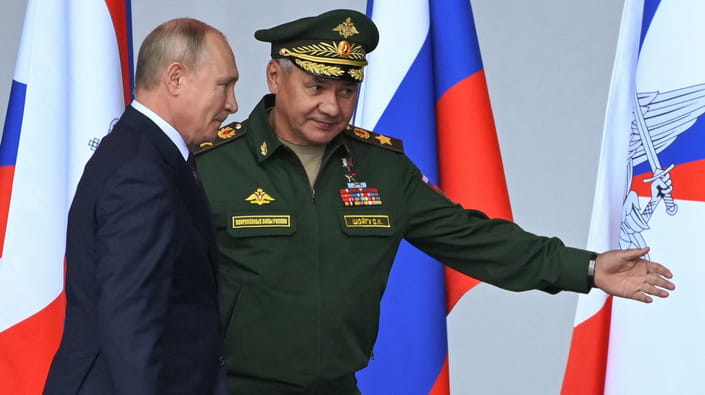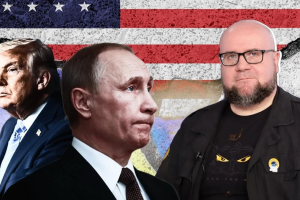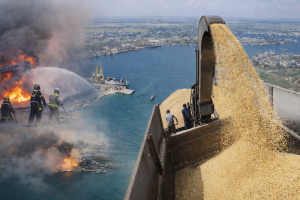One Step Before Recognition: How the “DPR/LPR's” Pseudo-Independence Can Change the Balance in Peace Negotiations

While the whole world is anticipating a possible military escalation from Russia, the Kremlin is taking a step toward recognizing the independence of the so-called "republics" in the occupied Donbas. Should it be expected that the Russian president will recognize these pseudo-formations as "states"? How will this change the negotiation framework between Ukraine, Russia and the West? And most importantly: which scenario is the safest for Ukraine?
Recognition can not be denied: where the comma should be placed?
The Russian State Duma does not act independently. Therefore, its adoption of an appeal to Putin to recognize the independence of the so-called "DPR/LPR" was a deliberate move. Moreover, it was no coincidence that it occurred at the same time as German Chancellor Olaf Scholz's visit, which had been planned well in advance.
However, this does not mean that the Russian president will certainly satisfy this appeal. Today the Kremlin has two basic options for using this instrument. Whichever of them Putin chooses, however, both will have serious diplomatic and even military implications.
The first option is not to recognize the independence of the so-called "DPR/LPR", but to suggest another "victory" with which to explain or overwhelm another refusal to recognize the "Donbas republics". And such a victory can only be derived in negotiations with the West and Ukraine.
Therefore, in case Putin does not sign a corresponding decree in the next few days, Ukraine should expect increased pressure from both Moscow and our European partners. If Putin refuses to recognize the DNR/LNR, he should achieve significant concessions from Ukraine in order not to find himself in a losing position.
Such a concession, for example, might be the beginning of the so-called direct dialogue between Kyiv and the ORDLO occupation administrations in the Minsk Trilateral Contact Group. In short, launching the implementation of the political provisions of the Minsk agreements.
That is why Russia can now try to urgently call a meeting of advisors in the Normandy format, where Russia will bring the issue to a head: either Ukraine agrees to begin active discussion of the political provisions of the Minsk agreements in the TCG, or Russia recognizes the independence of the "DPR/LPR".
In this situation, of course, Ukraine should not follow the logic enforced by Russia and violate Ukraine's own "red lines" in response to Russia's blackmail.
However, it should also be borne in mind that Paris, and even to a greater extent Berlin, do not abandon the hope of reaching compromises with Moscow, including on issues related to Ukraine. They may indeed warn Russia against recognizing the "DPR/LPR," but at the same time they may treat concessions from Kyiv loyally in order to prevent a complete collapse of the Minsk process.
The second scenario is that Putin recognizes the independence of these pseudo-republics in the coming days, or a little later if the attempt to bargain concessions from Ukraine and the West fails. This would unambiguously mean Russia's exit from the Minsk agreements, but it would also very probably increase the risks of a major military escalation.
In another period of time, by recognizing these "republics," Russia could change the diplomatic balance, but without the necessary military implications. Yet now, against the context of military-political escalation, such recognition would serve other purposes.
In this way, Russia is basically untying its hands for a hybrid scenario of an invasion of Ukraine, but with the forces of the so-called "republics". There is an increasing probability of a scenario in which an attack on the new Ukrainian-controlled territories will start precisely from occupied Donbass. Russia will initially deny, as it has since 2014, the participation of its regular troops in this offensive. Afterwards, the “DPR/LPR” as supposedly independent states will request military-defensive assistance from Russia. Alternatively, Russia itself will initiate its own intervention under the pretext of protecting Russian citizens, and mass issuance of Russian passports to the residents of the occupied territories provides a justification of such move.
From the point of view of international law, any of such pretexts for an open intervention by the Russian army would be negligible. But Russia cares about propagandist justification in this conflict, and certainly not about legal justification.
Minsk agreements: the patient is rather dead than alive?
In either of these basic scenarios, the future of the Minsk agreements will be one of the central issues.
Russia's recognition of these entities as "states" would diplomatically benefit Ukraine. For all Western countries without exception, Russia will be guilty of exiting the Minsk agreements. Claims about non-compliance with the Minsk agreements can still be heard regarding Ukraine, but it will be Russia that will exit the Minsk process. And the reaction of the West to such possible scenario is already consolidated.
It would mean that Kyiv gets a chance to reboot negotiations and not to approve the commitments that then turn into "red lines". Although this will obviously not happen in the near future. In contrast to this it should be understood that the probability of escalation will also grow, and in the long term. After all, if Russia now abandons the military scenario, but recognizes the "DPR/LPR", it will easily implement the very same scenario as in Abkhazia and South Ossetia - it will openly deploy its troops in the occupied Donbas. This will not significantly change the status quo with the presence of Russian troops in the Donbas, but the collapse of Minsk will definitely freeze negotiations for many years until new agreements are reached.
Most importantly, now the Ukrainian government should not start offering new political commitments to implement the Minsk agreements. Another attempt to outplay the Russians by, for example, promising to supplement the existing or adopt new laws on "special status," to amend the Constitution, to hold elections in occupied Donbas, or to begin a dialogue with the illegal representatives of ORDLO in the political subgroup of the TCG - all this will not change anything in Ukraine's favor significantly now. However, it could play against our interests. At the very least, because such promises can get caught not only in Moscow, but also in Berlin and Paris.
Therefore, despite the escalation on the front, Kyiv should perceive all this game of Moscow with the recognition of the "DPR/LPR" as another political maneuver. Kyiv should not agree to concessions, and at the same time use Russia's recognition of the "DPR/LPR" to systematically accuse Russia of disrupting eight years of negotiations. And at the same time, we must continue to prepare for the worst, military development of events.









